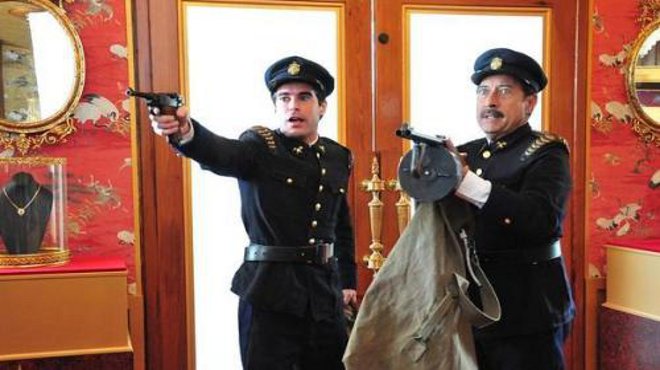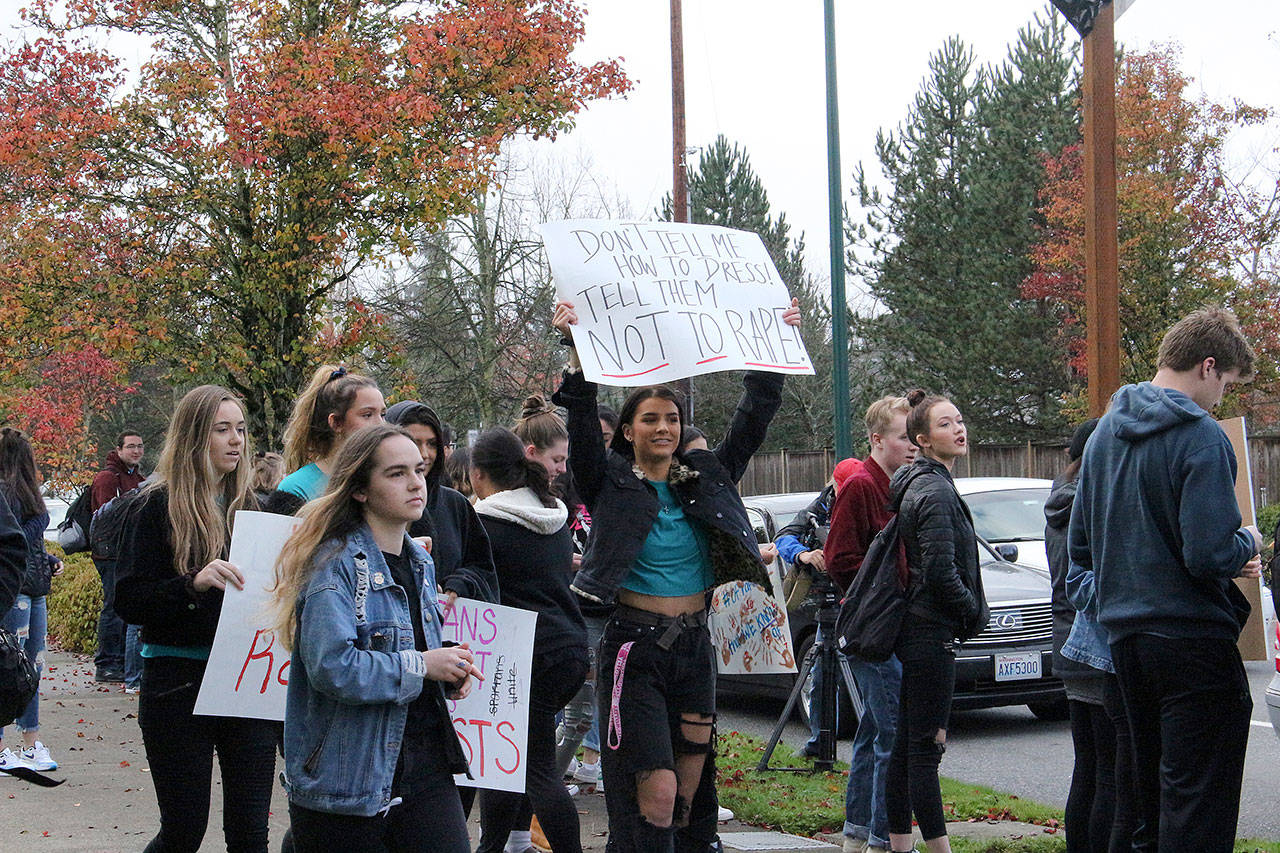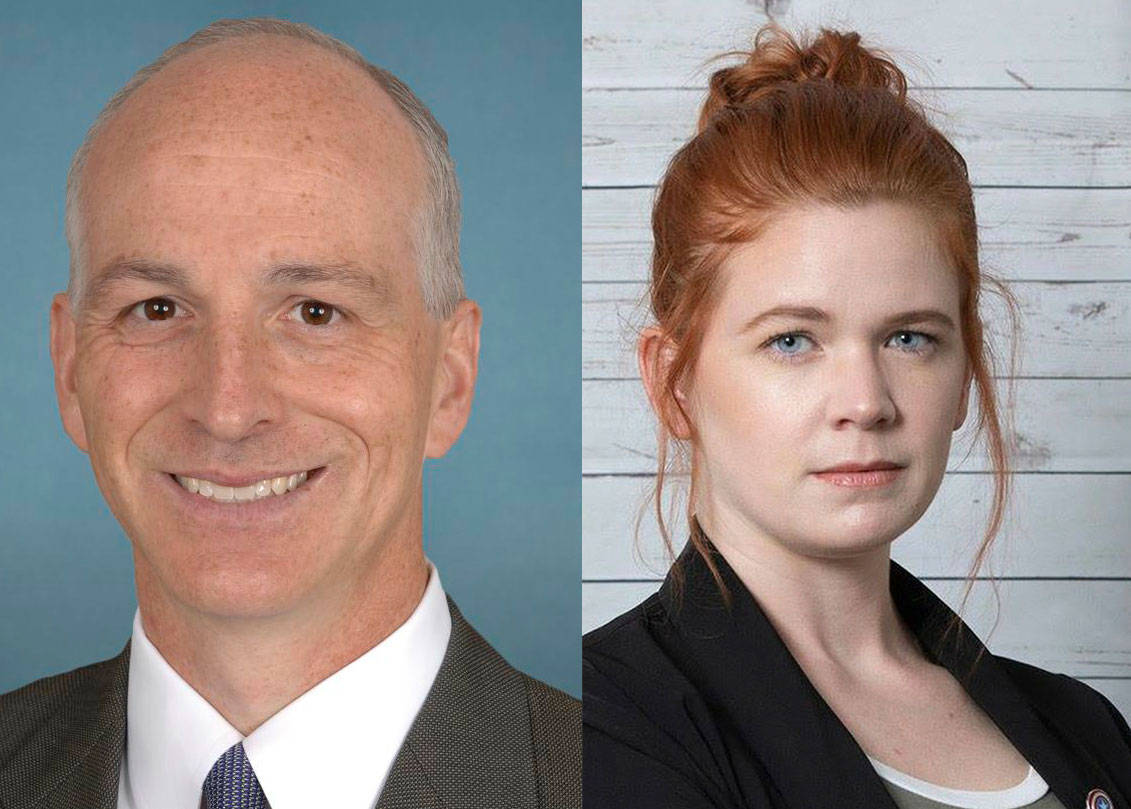For reviews of films running the rest of the week, check out SIFF Week Two Picks and Pans.
[PICK] After the Battle
6:30 p.m., Pacific Place
While the revolutionary protests of Tahrir Square soon faded from American consciousness, the Egyptians at the center of those battles had to continue living their lives. From those real events of 2011, Yousry Nasrallah launches this fictionalized account of the aftermath, an up-close view of the revolution woven with family drama and romance. The story follows middle-class activist Rim (Menna Shalabi) as she attempts to keep the revolution going by taking the message of democracy to her impoverished neighbors. This introduces her to the world of rural horsemen and the romantic advances of charismatic rider Mahmoud (Bassem Samra). Then things get complicated. She falls for him, but it’s difficult for us—and Rim, it seems—to discern Mahmoud’s role in the protests. Mahmoud was one of the horsemen who disrupted a peaceful gathering in Tahrir Square, made infamous by a YouTube video showing a rider falling off his horse and being severely beaten. Was Mahmoud a political operative paid by President Mubarak, or a pawn in a battle he didn’t understand? As Rim unravels the truth, Mahmoud’s life begins to unravel as well. Nasrallah deftly juggles the demands of his characters with the larger political implications of his story (though the need to serve both masters makes the film a tad long). And while Nasrallah is making a political statement here, the real message is that love and revolution make messy bedfellows. The pairing of such passions is difficult to resist. Mark Baumgarten
(Also 2 p.m. Sat., May 25.)
[PICK] Barzan
7 p.m., Harvard Exit
This is the disturbing story of Sam Malkandi, an Iraqi Kurd who settled with his family in Kirkland in the late ’90s. In 2003, as later reported in SW and elsewhere, he met an Arabic-speaking stranger at Northgate Mall, let the man use his address as a favor, then found himself arrested in 2005 and held at the Northwest Detention Center for over four years. Did he wittingly or unwittingly aid a member of al-Qaida? The matter remains unclear, as Malkandi was never tried. Instead, he admitted lying on his asylum papers and accepted deportation in 2010. Followed by filmmakers Alex Stonehill and Bradley Hutchinson, local journalist Sarah Stuteville interviews Malkandi in Kurdistan and his family here in the Northwest. Freedom of Information requests also yield valuable documents, with animation depicting some chapters of Malkandi’s Kafkaesque saga. (The feds wouldn’t go on record, no surprise.) “Where’s the evidence?” asks his teenage son, sitting in his suburban bedroom with Lamborghini posters on the walls. “They have no evidence.” Malkandi’s second wife, an Iranian, is no less affecting in her testimony, yet Malkandi’s many years as a refugee in Iran and the U.S. have given him a somewhat mutable past identity. A frustrated theater director, he admits, “I’m an actor”—changing his story to suit an audience. Stuteville does her best to get to the truth, but Barzan is more about the human cost to U.S. deportation policies; and since 9/11, Malkandi’s story is only one among three million. BRIAN MILLER
(Also 12:30 p.m. Sun., June 2, Kirkland Performance Center.)
¡Atraco!
9:30 p.m., Egyptian
With a title that translates as Hold-Up!, this is a fictionalized account of a famous jewel heist in 1955 Madrid. Deposed Argentine dictator Juan Peron is exiled in Panama, and his assistant Landa needs to raise cash for their future exile in Spain. Landa pawns the jewels of Evita Peron (now dead) in Madrid and hatches an unlikely plan with the jeweler to secure their return: They’ll stage a fake robbery before the wife of Spanish dictator Francisco Franco can claim the gems for her own, and Peron will never know of the ruse. What could possibly go wrong? Landa recruits a loyal aide, Merello, and his own illegitimate son, Miguel, for the job; they fly to Spain, where everything goes predictably awry. Director Eduard Cortes never settles on a satisfactory tone for this nostalgic period piece. The robbers are comic bunglers; the women and costumes are glamorous and chic; and while there’s constant talk of politics, that era’s brutality is never really felt. A cagey old cop, half blind with glaucoma, is the film’s most potentially interesting figure. Detective Naranjo (Jordi Martinez) is a grizzled survivor on the political outs because he sided with the Republicans in the war. He knows the cost of defying Franco’s regime, while the blithe Argentine robbers do not. Unfortunately, ¡Atraco! never makes those deadly stakes seem real. There are hugs, bullets, and blood, plus a sentimental coda that feels anything but earned. BRIAN MILLER
(Also 6 p.m. Fri., May 24, Renton Performing Arts Center and 11 a.m. Sat., May 25, Egyptian.)
In the Fog
9:30 p.m., SIFF Cinema Uptown
Wow, what a Russian movie. Gloom, doom, and existential foreboding. Peasants slogging through the forest. Constant hunger and hardship. You get all that plus the atrocities of World War II. And this slow, somber adaptation of a novel by Vasili Bykov (directed by Sergei Loznitsa) is over two hours long. And yet still I like it. Sushenya is accused of betraying two railroad saboteurs to the German-controlled authorities in 1942 Belarus. (Basically they’re Nazis who speak Russian.) Burov and Voitik, two resistance fighters, arrive at Sushenya’s door. “Should I take a shovel?” he asks. The answer is yes. Executioners and the condemned man accept their roles, even though Sushenya insists he’s innocent. The grave is dug, but before anyone dies, In the Fog gives each of the three parties a long flashback to explain how they came to their unhappy positions. Burov, it emerges, is no brute. Voitik’s character is consistent. And Sushenya, far from being a collaborator, is a peasant with a keen moral compass: Kill one Nazi, he reasons, and the entire village will be exterminated in reprisal. It’s early in the war, and Russia must accept its losses. Or as Sushenya tells his childhood pal Burov, the man with the rifle, “There’s nothing to discuss. It’s fate.” BRIAN MILLER
(Also 1 p.m. Fri., May 24, Pacific Place.)








